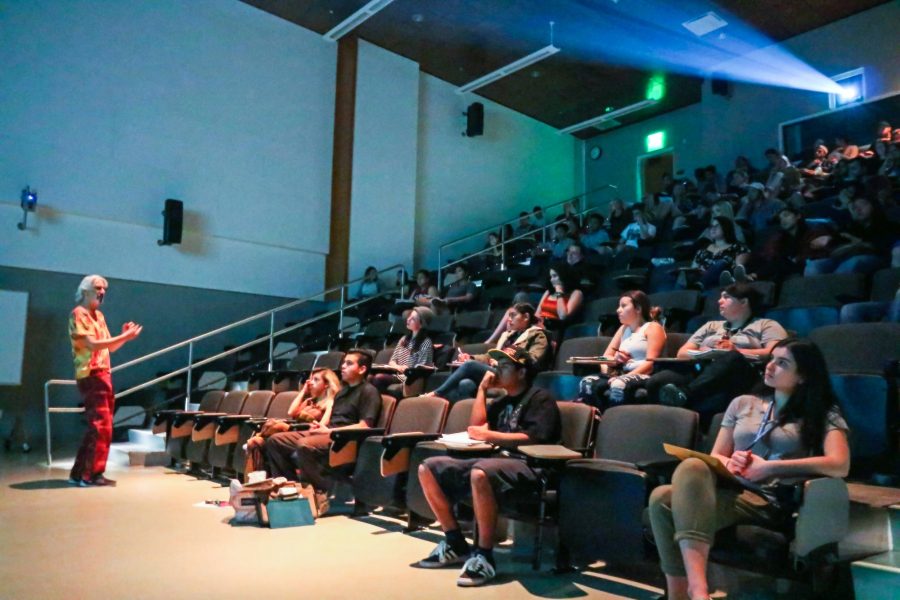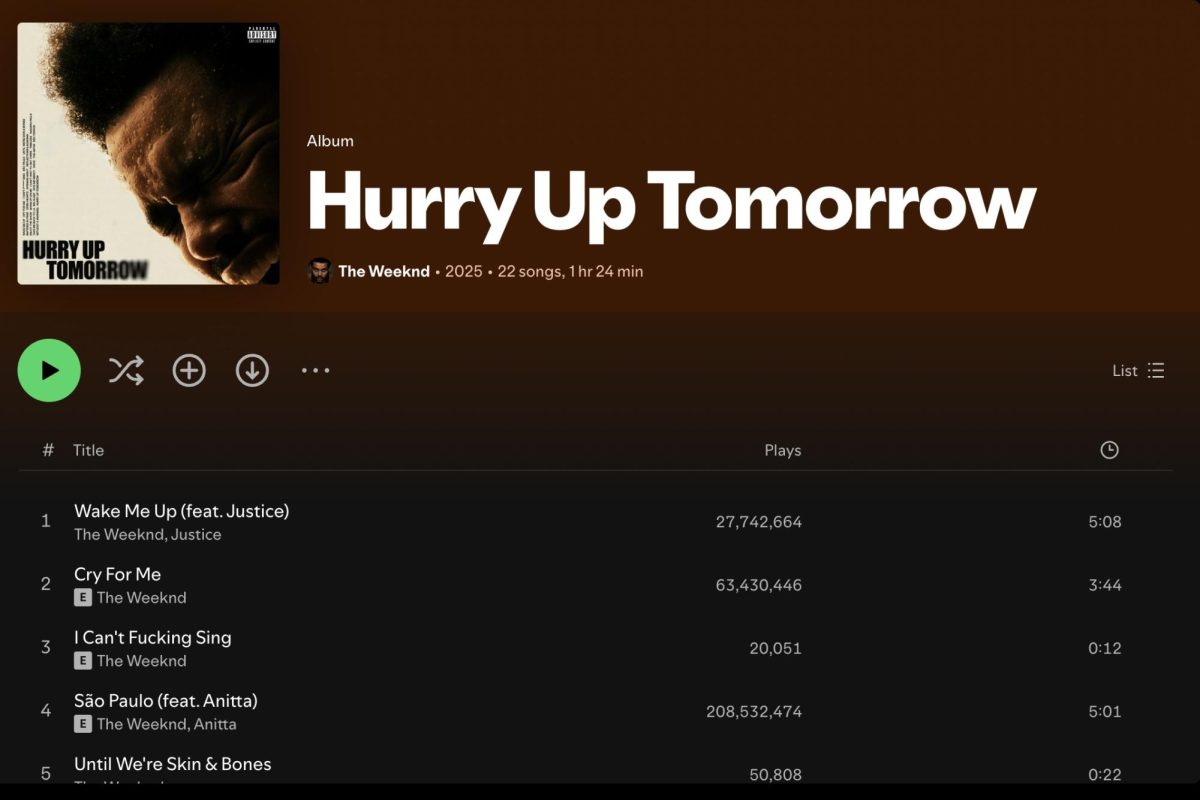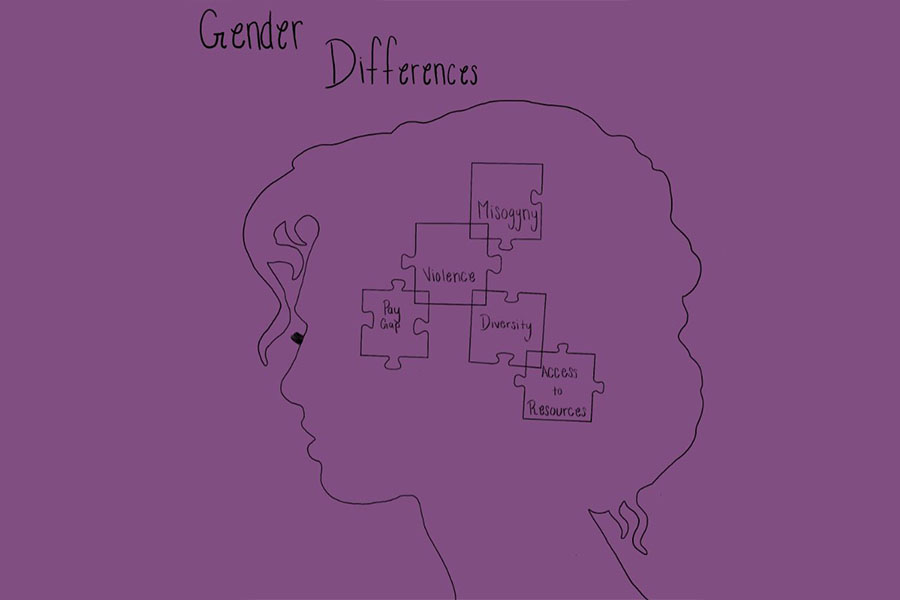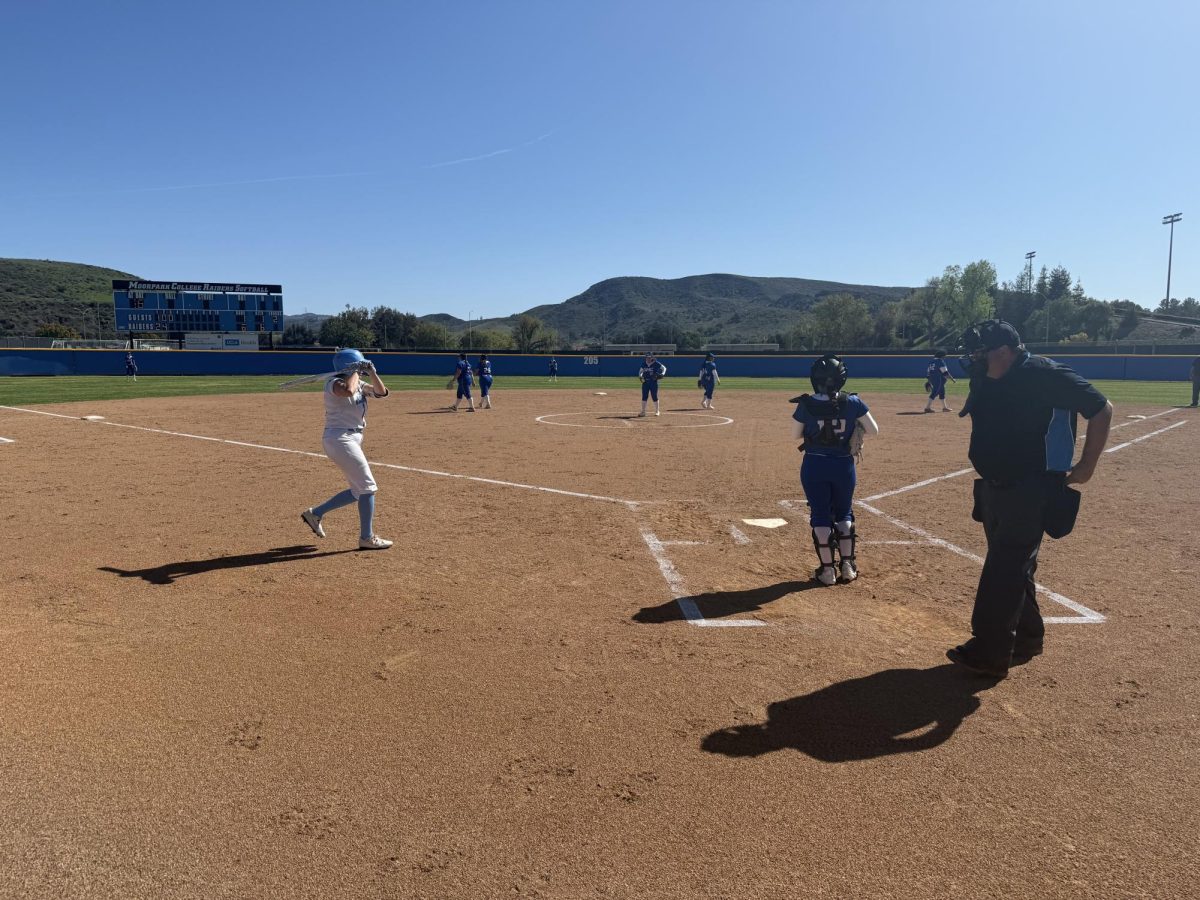During Multicultural Day on April 11, campus was alive with colors and music representing cultures found all over the world. Anthropology professor John Baker, held a seminar, however, that hit very close to home: “Did We Learn Anything from The Sixties?”
Baker is referring to the sub-culture that was formed in the U.S. during the 1960’s, which consisted of countless movements for peace, love and freedom.
Dressed in a bright yellow and orange tie-dyed outfit, Baker began his presentation with a classic Beatles tune and a groovy welcoming. He then began to delve into the values and events that influenced the infamous 1960s, beginning with the Vietnam War.
“The body count was always higher for the other side, which meant we had won that week,” said Baker.
The truth was hard to accept at the time due to it’s horrific nature, but nonetheless was real. Baker recalled his own experience of being a teenager as the war received constant coverage by the news, Life magazine, poets and political figures.
Baker reflected on the thoughts held by Americans. It revealed a chilling parallel to current thoughts in our country, as he elaborated on business executive Robert McNamara’s role in the war. Baker made it clear that we have not learned from the past error of electing unqualified officials.
“He brought his business acumen to fighting a war,” said Baker. “People thought, ‘how cool is this! We’ll bring this businessman in. No politician, no general, businessmen will know how to make the decisions that are important. They’ll cut to the chase. They won’t be burdened by all of this political and historical baggage.’”
Aside from fighting overseas, there was another battle happening within the U.S.-the civil rights movements for African Americans and women. Riots exploded in cities nation-wide, and some of the biggest names in the movements were assassinated, such as Martin Luther King Jr., John F. Kennedy and Malcolm X.
Violence was escalating between civilians and those in power. March 7, 1965 was when the Selma to Montgomery marches took place, in which peaceful demonstrators protesting for African American voting rights were attacked by Alabama state troopers.
“The moral ground began to shift,” said Baker.
Today, it seems as though that moral ground is still not so sturdy. Americans are divided by their support, or lack of, for our new Commander in Chief. Our nation is begging for equality, yet discriminating against each other for their beliefs.
While Professor Baker did acknowledge the progress that has been made since that time, he was sure to point out inequality still present today. Clearly, there is still work to be done, as he mentioned the male-female pay gap and the Black Lives Matter movement.
During the 1960s, a chemical known as Agent Orange was sprayed along the jungle canopies in Vietnam to reduce the foliage and increase view of the ground. According to Baker, the well-being of the environment was nowhere near the top of the agenda. Baker made reference to how fracking, the process of pumping various chemical deep in the earth in order to extract oil, follows this same principle.
Baker pointed out the high importance of business functionality to the U.S. government, and how it has and will still have negative effects on human life. He offered a reference that was certainly shocking to those at the seminar.
“Moorpark was the first city in the United States to have all of its energy generated from nuclear power,” said Baker. “The facility closed down a few years later, after it melted down once or twice.”
The terrifying reality of Baker’s informative speech was clear to see for history major Sarah Shay. Not only did she appreciate his approach to the subject, she also felt that she had gained new perspective on our country’s present circumstances.
“Definitely, history is repeating itself,” said Shay.
Baker made a relevant connection to how the 1960s mentality mirrors current views of right and wrong in our nation. From our recent military actions, to our slow progress in equality and respect for the natural environment, the connection is hard to deny.
The ominous face of a dark past seems to be showing itself once more, which is why it is imperative that we not only understand history, but that we learn from the mistakes that were made.
Baker’s passionate and insightful seminar shed light on these mistakes, with the hopes that others would pass on the message that was being created in the 1960s.
“The Summer of Love didn’t just pop up because there was finally enough water for the flowers to bloom,” said Baker. “The Summer of Love came about as a reaction to this kind of stuff, to the greed, to the excess, to the inability of the individual to feel any sense of control about their destiny and where their country was going.”
Sound familiar?













